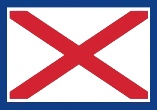|
Service Record
|
From
|
To
|
|
Basuto
Master
|
5/1873
|
|
|
Natal
Master
|
10/1873
|
|
|
Celt
Master
|
1875
|
2/1875
|
|
Dismissed
from the Company
|
1875
|
|
Capt George Edward Bird
RNR
The judgement of the official Court of Inquiry was delivered on Tuesday morning last at eleven o'clock, the Resident Magistrate's court being densely crowded with spectators. The findings of the Court is as follows, and judgement was read by His Worship, in the presence of the captain and officers of the wrecked Celt and Captain Ker, the representative of the Union Company.:-
After careful consideration of the evidence, the Court finds the captain failed to exercise due care for the safe navigation of the ship, in that after having landed a quantity of railway iron that as appears on comparison of observations in the compass book had affected the standard compass to the extent of 4(deg) and 5(deg) in certain points notably S.E.by S., the course given by him at 9.20 p.m. He neglected to ascertain the error of his compasses, when the same could easily have been done in the afternoon of the 6th of February
Enquiry into the Wreck of Celt
Want of care is also shown in that, after the ship had been put on her course, that if true, would at the speed she was going (10 knots), lead her to close with the land after a run of five or six hours, no attempt was made to verify her position, as might have been done from time to time, by bearings of the Cape Point light having been visible until after midnight. Want of care is also shown in that the ship steering a course that must lead her during the night too close to the dangerous part off the coast where the currents vary, no instructions were given to get a cast of the lead. It also appears that after the captain gave the courses after 9.20 p.m. he never was on the bridge himself, nor had any communication with the officer of the watch. By his own statement, he was asleep in his cabin, and had been so for an hour and a half before the vessel struck. Such want of care is inexcusable in navigating any vessel, and is still more so in the present case, where the safety of so many depended on the prudence and the careful attention of the captain. This neglect and want of care amounts to default on the part of the captain.
The court finds that John Alexander Miller, the second officer, is in default in that through great negligence and inattention on his part the ship was run ashore on a fine, calm, clear morning, when had a proper lookout been kept by him during his watch, the dangerous position of the ship must have been discovered in ample time to have avoided the disaster and the Court judges that the certificates of George Edward Bird, the master, and of John Alexander Miller, the second officer, be suspended for twelve months.
On returning the third officer's certificate the Court admonishes him to be more resourceful in the future. The want of knowledge of the Cape coast shown by him in stating positively that the Cape Point light is a fixed light when it is in reality a revolving light, is not to his credit.
In returning the certificates of the chief officer, Alfred William Brook Smith, and of the fourth officer, Franz Karl Thimms, the Court finds their conduct to be entirely free from all blame in connection with the loss of the said vessel.
The certificates of the first, third and fourth officers having been returned.
Captain Bird (addressing he Court) said:- Transportation would have been much better than that.
The Magistrate:- I cannot help that.
Captain Bird:- I have a wife and family, and now will be without means.
The Magistrate:- The Court had a duty to perform.
The captain and officers then left the Court.




